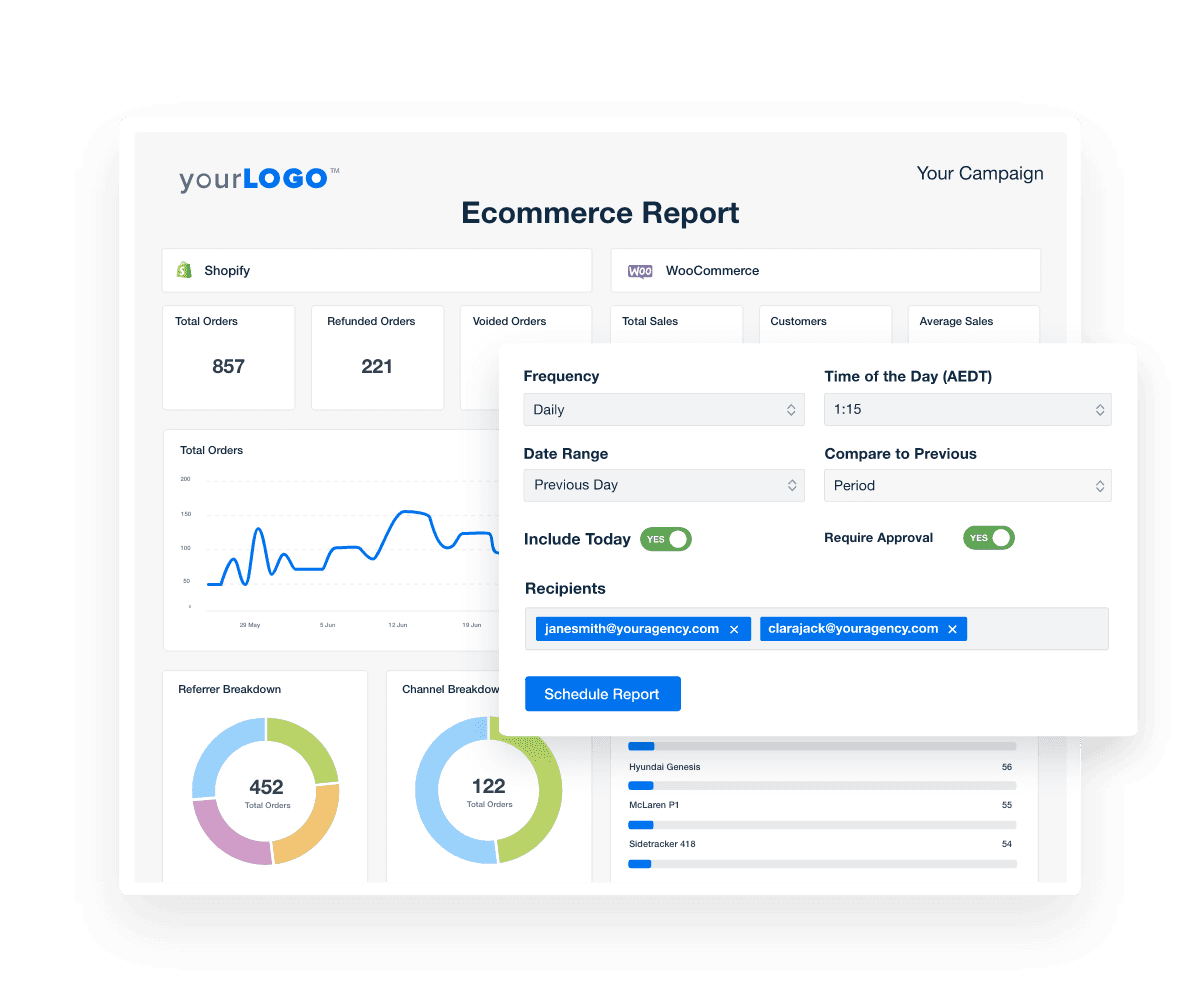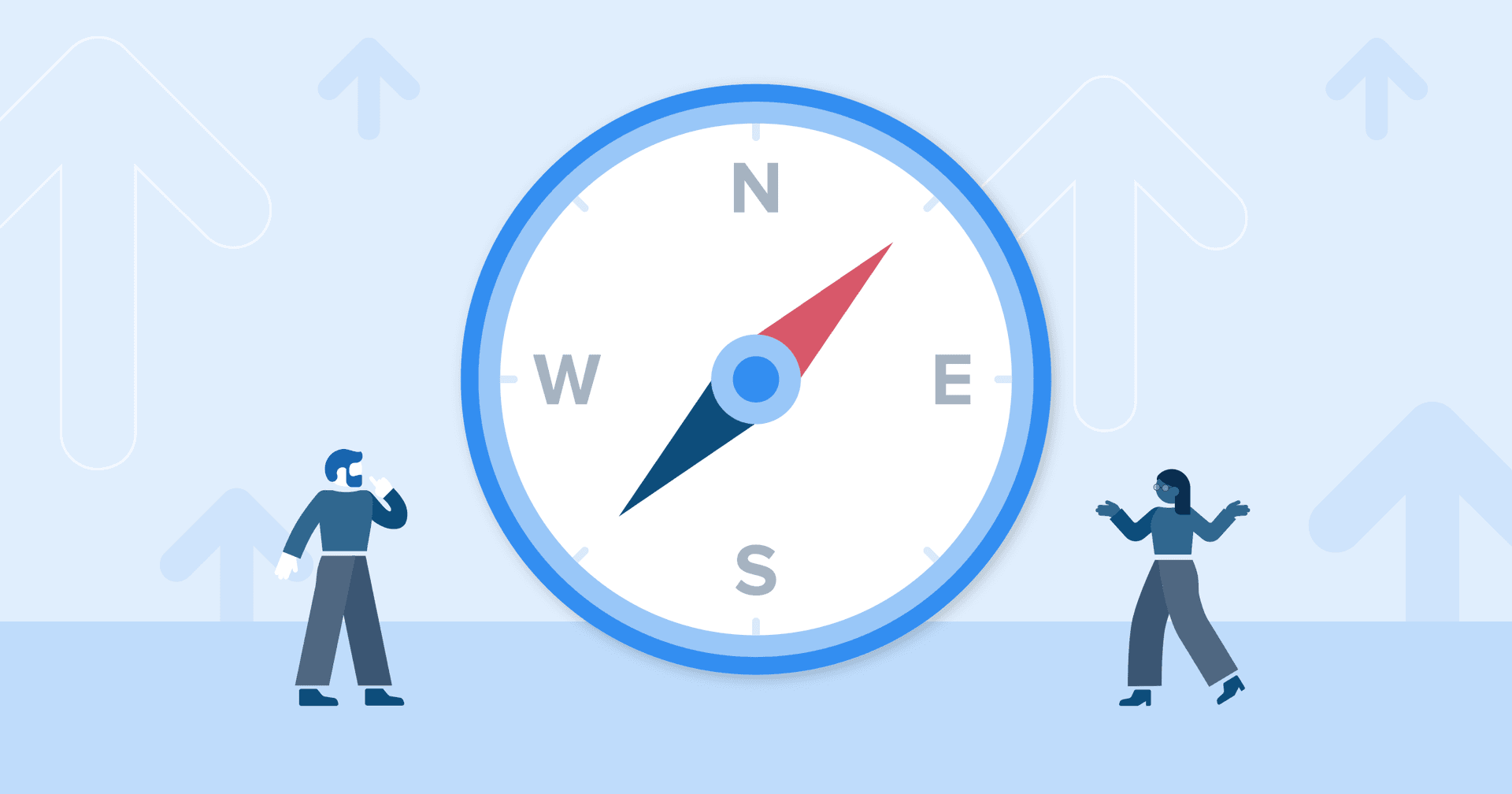Table of Contents
QUICK SUMMARY:
Thinking about stepping back from your agency one day? This guide dives into succession planning to ensure your agency thrives under new leadership. You'll learn practical strategies from industry leaders who champion embedding succession planning deep into your business approach. Get insights on nurturing future leaders and keeping your agency stable and strong, even when you're not at the helm. Whether it's for a break, retirement, or a new adventure, this guide is your roadmap to a seamless transition.
As an agency leader, your business is your garden: You’ve tended it meticulously—planting seeds, pruning, and ensuring each plant grows and bears fruit.
But there comes a time when you must prepare it to flourish under someone else’s care—whether because it’s time to take a step back, take a deserved sabbatical, or move on to other pastures.
Though Harry Kabadian does not plan to step aside from his role as the founder of Fancy Lab, a full-service ecommerce agency based in Los Angeles, California, succession planning is still baked into the agency’s leadership strategy as it looks to the future.
Succession planning is critical for us. We're looking for leaders who can not only contribute now but also have the potential to guide our business in the long term.
Harry Kabadaian, Founder, Fancy Lab
This guide will equip you with effective succession planning strategies to cultivate a sustainable ecosystem within your agency and maintain business continuity. Investing in leadership development and nurturing potential leaders will ensure your agency remains robust and vibrant when the time comes to take a step back.
The goal is to enable continuous growth and stability and turn potential challenges into opportunities for renewal and innovation.
Let’s explore the strategic process of developing future leaders, which will enable you to gradually hand over the gardening shears while ensuring your planted crops continue to blossom and grow long into the future.
What Is Leadership Succession Planning?
An effective leadership succession planning strategy ensures stability and continuity within a business by preparing for key leaders' departures. It involves identifying and developing internal candidates who can assume leadership roles when current leaders retire, leave for long periods, or move into new positions.
Succession plans are crucial for maintaining smooth operations and avoiding disruptions when key positions are suddenly vacated or inevitable leadership transitions occur.
Key Benefits of Succession Planning
Maintaining Business Continuity for Your Agency: Training potential senior leaders through development initiatives, mentoring, and hands-on projects will prepare them for future roles.
Future-Proofing Your Agency: Effectively retaining institutional knowledge minimizes the impact of leadership transitions, helping the organization maintain its operational effectiveness and strategic direction.
Engaging and Retaining Talent: Clearly outlining the agency's career pathways and development opportunities will boost employee engagement and retention. This will help team members see a future for themselves and opportunities for advancement, making them more likely to be committed and stay long-term.
5 Reasons Why Having a Succession Plan Matters Right Now
Even if you’re not planning to step back immediately, the importance of having a well-defined succession plan can’t be overstated.
Agency leaders wonder why they can't break free from their agency's chains. They've essentially built a “superhero-driven business model” where they're the superhero.
Frank Cowell, Founder, Revenue Ranch
There comes a point in any leader’s business life where they must shift from being the indispensable hero to becoming a mentor who prepares future leaders to take over.
From maintaining operational integrity to fostering growth, here’s why it's crucial to have a succession plan in place right now.
1. Responding To Unexpected Changes
Agencies are often vulnerable to sudden shifts due to personal decisions, health issues, or market forces. A succession plan ensures that capable individuals are always ready to fill critical roles.
Jessica Tappana had always dreamed of taking a sabbatical to explore the world with her husband and two children. In 2023, the founder of Simplified SEO Consulting made her dream come true by ensuring she had a succession plan in place for her team during her absence.
Building the plan took careful planning, including extensive team training, systems implementation to ensure optimal client satisfaction, and building a solid leadership structure that could stand independently while she traveled.
Some things I did to help prepare the team for my extended absence included growing our leadership team and putting a couple more positions in place so there are more layers and more support for leadership.
Jessica Tappana, Founder, Simplified SEO Consulting

To take a well-deserved sabbatical, Jessica Tappana (left) entrusted Simplified SEO Consulting's daily operations to Chief Operating Officer Danica Wolf (right). (Credit: Simplified SEO Consulting)
2. Driving Stable Business Growth
A robust succession plan is directly tied to an organization’s ability to grow and adapt. By preparing internal candidates for future leadership roles and creating a stable leadership team, companies ensure their strategic objectives don’t stall.
Sustaining and driving growth is especially important to an agency like Tampa’s Lawnline Marketing. With a roster of clients featuring multi-million dollar lawn care and landscaping companies in the U.S. and Canada, Lawnline ensures its leadership team keeps up the momentum without the constant input of Founder and CEO Tony Ricketts.
One of the turning points (in succession planning) was putting in place that leadership team, allowing them to run their departments and manage their workloads without me having my finger on it all the time.
Tony Ricketts, Founder & CEO, Lawnline Marketing

Tony Ricketts (left) and Lawnline Marketing ensure their multi-million dollar clients can always rely on a leadership team that will help them grow their business. (Credit: Lawnline Marketing)
3. Enhancing Organizational Resilience
Succession planning enhances an agency's resilience by reducing dependency on any single individual. When you identify potential leaders before they need to fill those roles, It ensures the agency will withstand leadership changes without losing its momentum or strategic focus.
Our leaders must be adaptable and resilient, ready to lead through changes such as scaling operations or navigating market shifts, which is especially important for a small agency like ours.
Harry Kabadaian, Founder, Fancy Lab
4. Cultivating a Culture of Development and Retention
Effective succession planning is integral to nurturing a culture that values growth and development, which drives employee retention and engagement. When team members see a path for advancement and feel their development is a priority, it boosts employee morale and loyalty.
Dan Delmain emphasizes that delegating more tasks to team members helps with productivity and learning and reassures him that his dental marketing agency will be in good hands no matter what happens.
One of my biggest fears is being the bottleneck within the organization. But the more I delegate and elevate, the further away I get from the fear. The growth of the agency is limitless, employees feel empowered, and clients gain from someone else who excels in that role.
Dan Delmain, Owner, :Delmain

Dan Delmain (middle) learned to let go of fear by delegating his tasks to other team members. (Credit: :Delmain)
5. Preparing Clients for Strategic Exits and Future Leadership Transitions
For many leaders, stepping back is part of their long-term strategy, whether for retirement or to pursue new ventures. A succession plan leads to smooth transitions and ensures that leadership shifts and changes don’t impact clients.
For Sergio Bisio, CEO of Miami agency SB8 Group, succession planning should always prioritize client communication. A well-rounded succession plan should involve communicating changes to clients to ensure they remain confident in the agency’s ability to grow their business now and in the future.
When you start stepping back from day-to-day operations, it's normal for clients to think everything will change, especially if you've been highly visible to them. Clear communication and consistency are key to easing this transition.
Sergio Bisio, CEO, SB8 Group
How To Implement a Succession Plan in Daily Agency Operations
Implementing a succession plan into the daily operations of an agency involves integrating strategic processes into everyday activities.
For agency leaders, succession management strategies should become a living part of the agency's culture and operational strategy rather than a static document.
What do I have to do to train you to get to the point where I feel like you're making all the same decisions that I am without me being here?
Nathan Hawkes, President, Arcane Marketing
Here are practical steps to weave successful succession planning into the fabric of daily business operations:
Define Key Roles and Build a Future Leadership Pipeline
Identify key positions within the organization that are essential for business continuity and strategic priorities. For each key leadership role, identify potential successors who can step in either temporarily or permanently.
Assess internal talent skills, experiences, and development needs to match them with future leadership roles. Developing talent pipelines will allow you to understand talent gaps and pinpoint who could fill these positions and what training they might need to get there.
We used a classic matrix to guide our succession planning: Identifying what I'm good at, what’s most important, what I enjoy doing, and the opposite. I delegate tasks that don't align with these strengths or preferences. This approach ensures that I focus on what adds the most value to the business while other team members handle tasks that fit their strengths better.
Sergio Bisio, CEO, SB8 Group
Incorporate Succession Planning Into Performance Reviews
Make succession planning a regular part of performance evaluations. During these reviews, discuss career aspirations with employees, evaluate their growth, and identify development opportunities.
By aligning individual goals with organizational needs, you’ll create a roadmap for employee development and talent management that supports succession needs.
Offer Targeted Development Programs
Develop and implement training programs that are tailored to developing the core competencies of future leaders as part of your agency's leadership succession planning. These could include professional development programs, mentorship arrangements, and cross-functional training.
By investing in formal training programs and on-the-job learning opportunities, agencies prepare internal candidates for future roles, ensuring they have the necessary competencies and confidence to take on new challenges.
One of our lead SEO specialists was hesitant to hand over responsibilities to junior team members because he feared they wouldn't meet the standards or have the necessary experience. He decided to invest time in training his team members and started assigning them small, low-risk tasks while he closely monitored their work.
There were instances where mistakes were made, like targeting the wrong keywords or misinterpreting data from analytics. However, these moments became valuable learning opportunities.
Anthony Sergeev, SEO Manager, Affordable SEO Near Me
Foster a Culture of Knowledge-Sharing
Encourage a culture of knowledge sharing across the entire organization. This is facilitated through regular team meetings, project debriefs, and digital platforms where employees share insights, standard operating procedures (SOP), and resources.
A collaborative knowledge-sharing environment helps retain foundational institutional knowledge and reduces the risks associated with turnover in key positions.
Make sure there's a company culture aligned with your values and vision. In our case, if our clients succeed, the entire team succeeds. Create SOPs for everything, automate processes, and keep your clients informed.
Sergio Bisio, CEO, SB8 Group

Save time collecting data and delivering client reports. Automate and schedule reports in just a few clicks with AgencyAnalytics. Start your 14-day free trial today!
Implement Job Rotation Programs
Job rotations are an effective way to expose potential successors to different business areas as well as developing leaders.
Nurturing high-potential employees broadens their understanding and skills and helps pinpoint areas where they excel and where further development is needed. It also prevents silos from forming within the company and promotes a more cohesive understanding of the business.
Plan for Emergency Succession
Set up an emergency succession plan to prepare for unexpected situations like sudden absences or departures. This plan should specify who will step into leadership roles if someone unexpectedly leaves. Ensure everyone on your team knows about this plan and understands their responsibilities when needed.
If there's a silver lining to challenging business circumstances, unexpected absences can be a valuable tool for identifying potential leaders.
Regularly Update and Communicate the Plan
Succession planning should keep pace with your agency’s growth and changes. Make it a habit to regularly check and update your succession plan to match shifts in your business strategy, staff changes, and other important factors. It's crucial to keep everyone in the loop—make sure your team knows about the plan and understands their role in it.
Measure and Adjust the Succession Strategy
To gauge how well your succession planning process works, look at what's happening with your leadership changes, how well you're keeping your team members informed, and whether the next-in-line leaders are ready to step up. Use this information to tweak your plan, fill skill shortages, and better align with your agency's objectives.
Essential Tips to Tackle the Challenges of Transition
Tackling leadership transition challenges in a marketing agency involves a unique set of considerations centered around maintaining creative momentum and strategic vision.
Here are tailored tips for agency owners looking to implement a successful succession plan while focusing on entrepreneurial growth and continuity.
Handling Emotional and Operational Adjustments
Transitioning away from day-to-day involvement can be emotionally challenging for founders who have poured their heart and soul into their agencies.
Floww Digital managing director Andrew Logan admits it was difficult for him to step back from projects he was used to overseeing as he began delegating more responsibilities to other team members.
It's definitely a bit of an adjustment to say, “I'm not even going to look at that.” There are projects that I don't necessarily know where they are at right now, but I know that they've been looked after. Still, from someone used to doing it all, it can be quite uncomfortable at times.
Andrew Logan, Managing Director, Floww Digital
Delegating responsibilities gradually is essential to managing these adjustments. Leadership development programs provide founders and upcoming leaders with the tools to effectively manage the emotional aspects and operational shifts.
Ensuring Continuity and Quality of Services
For a marketing agency leader, ensuring continuity in creative output and client service quality during the transition process is paramount.
Agency leaders should develop talent pipelines to sustain organizational culture and operational efficacy. This involves detailed career planning and regular training to enhance employee performance and ensure that all key competencies are covered as new leaders take the helm.
One of the biggest challenges has been understanding that I don't need to be involved in everything and accepting that there are younger people who are much better than me in many areas. It's also been difficult to recognize that the new generations have different perspectives on life and work. We need to adapt to ensure they feel comfortable and valued.
Sergio Bisio, CEO, SB8 Group
Avoiding Rushed Decisions and Ensuring Hiring Fit
Rushing to fill key leadership roles will lead to misalignment that disrupts team dynamics and undermines business objectives.
Agencies should invest time identifying key talent from internal and external candidates, ensuring they embody the leadership qualities and organizational knowledge crucial for maintaining the agency's unique ethos.
We're looking for leaders who can not only contribute now but also have the potential to guide our business in the long term.
Harry Kabadaian, Founder, Fancy Lab
Managing Burnout and Productivity
Burnout is a significant risk in a high-pressure environment like a marketing agency. Effective delegation ensures that no single team member is overburdened, fostering better employee performance and overall agency productivity.
Spreading yourself too thin can mean that none of the tasks get the attention or the effort they require to be done well.
By delegating routine and less critical tasks, business leaders can focus on core activities that drive business growth, such as strategic planning, business development, and fostering key relationships.
Anthony Sergeev, SEO Manager, Affordable SEO Near Me
A strategic distribution of responsibilities should be planned with career progression in mind, offering promising employees opportunities to develop and showcase their capabilities.
Impress clients and save hours with custom, automated reporting.
Join 7,000+ agencies that create reports in minutes instead of hours using AgencyAnalytics. Get started for free. No credit card required.
Set Yourself Free and Empower the Next Generation of Agency Leaders
Developing a leadership succession plan is far more than a routine administrative task; it is a critical strategy woven deeply into an agency's operations and culture to ensure a smooth transition and business continuity when it’s time for a leader to step back.
Succession planning is about integrating leadership competencies seamlessly into your organizational culture, ensuring fertile ground for seasoned senior management and emerging leaders poised to take the reins.
As you grow, you can't do everything yourself. You have to remove things from your plate, and you've got to trust other people to handle your business.
Tony Ricketts, Founder & CEO, Lawnline Marketing
By embracing these succession planning goals, your agency becomes resilient, adaptable to change, deeply rooted in a robust organizational culture, and continuously blossoming with innovative ideas.

Written by
Francois Marchand brings more than 20 years of experience in marketing, journalism, content production, and artificial intelligence (AI). His goal is to equip agency leaders with innovative strategies and actionable advice to succeed in digital marketing, SaaS, and ecommerce.
Read more posts by Francois MarchandSee how 7,000+ marketing agencies help clients win
Free 14-day trial. No credit card required.






